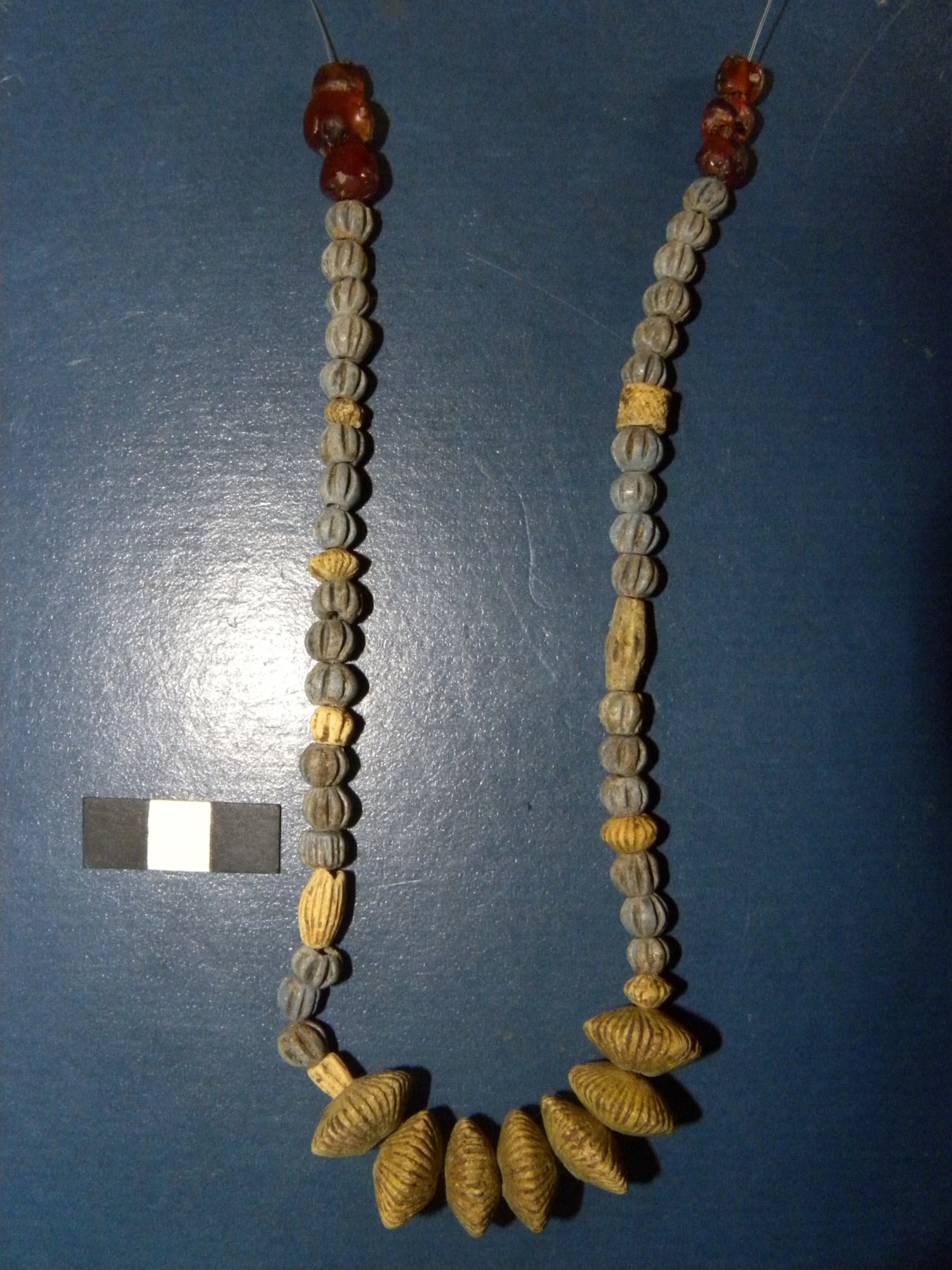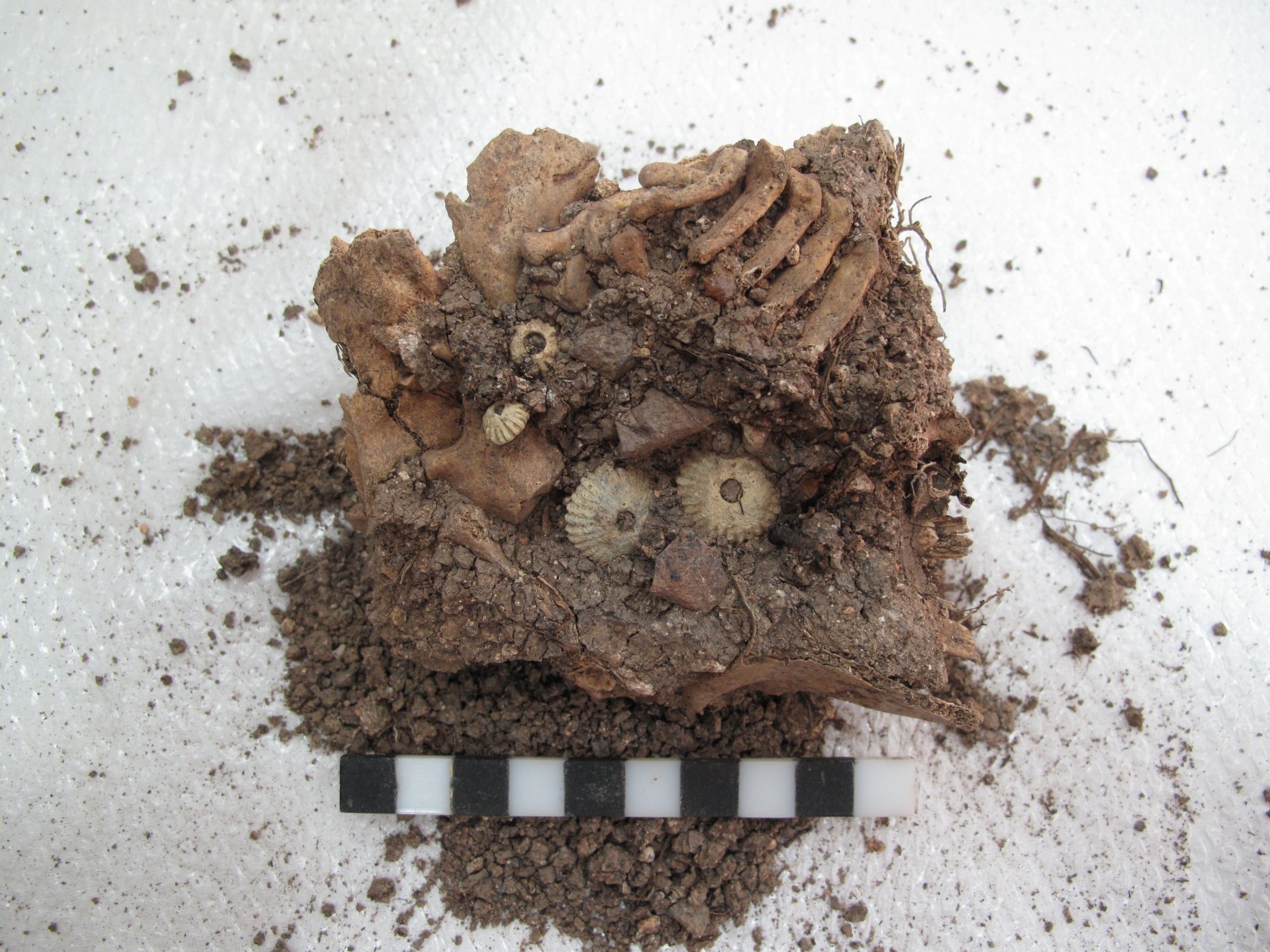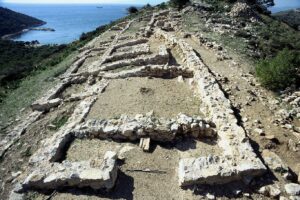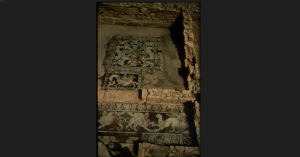Archaeologists working on the island of Aegina in the Saronic Gulf, south of the greater Athens area, have uncovered the skeletal remains of a toddler with Down Syndrome who lived some 3,300 years ago.
The discovery, as reported in the scientific journal Nature Communications, is the first evidence found to date which places an individual with the syndrome in pre-Classical Greece.
‘The discovery was made during excavations at a Mycenaean-era settlement near the modern-day village of Lazarides, on the east coast of the island.
Researchers said the skeleton belonged to a female child aged between 12 and 16 months who lived in the 13th century BC. The toddler was buried wearing an elaborate necklace made of 93 quartz-glass beads and six made from carnelian, a semi-precious stone, a discovery indicative of the care the toddler received in death as in life.
Archaeologists from the National & Kapodistrian University of Athens (EKPA) have been excavating at the site since 2005.
Aegina is a well-known island that hosted a formidable city state during antiquity.

The necklace (Source: Lazarides excavation file





